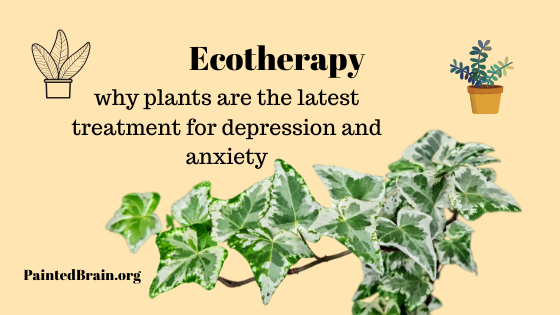Ecotherapy is a therapeutic style based on the idea that interacting with the environment impacts one’s mental health. Research on ecotherapy suggests a variety of forms of interaction with nature can improve a person’s well-being, from simply viewing pictures of natural scenes to physically enveloping oneself in the natural world.

Ecotherapy can help alleviate challenging symptoms of depression and anxiety.
For example, some people experience intense stress about the impacts that climate change on their lives. Some people are forced to leave their homes because of the impact that climate change has on them.
The increased frequency and intensity of related weather disasters, such as hurricanes, droughts, and fires, can physically destroy or deplete resources that people rely on for survival, forcing them to migrate. Leaving one’s place of origin under such circumstances can cause extreme stress, and for some even just the knowledge of this possibility causes fear.
Making the connection between your stress and the natural environment around you can help you understand the origin of these fears, and thus develop appropriate, helpful coping strategies.
Not everyone’s struggles are directly related to the climate crisis, but ecotherapy still highlights the human-environment connection to help people overcome challenges that may accompany mental illness. As mentioned above, research across the globe has shown a connection between mental health and interaction with nature.
Sustaining a plant helps a person build their connection with nature, practice mindfulness, and take their mind off personal challenges. It has also been shown that there is a bacteria often found in soil that can activate neurons that stimulate serotonin production. Even simply looking at a photo of green space for under a minute has been shown to boost one’s mood.

[Related: Sour mood getting you down? Get back to nature]
Because of the general availability of nature to most people, here are some free or low-cost ecotherapy practices that you can try on your own:
Nature Meditation:
Find a space in nature to practice a meditation technique of your choosing.
Listen to the sounds that you hear and try to draw them.
Make a note of each of your senses:
What can you see, smell, taste, hear, and feel?
Horticulture:
Plant something of your own. Watching something grow can be an extremely rewarding experience, and often includes an aspect of mindfulness. Taking some time out of your day to care for your plant can reduce time spent focusing on the stresses of life.
Animal Interaction:
Go to the closest dog park to watch the puppies play, spend some time with your own pet, or find an animal to observe for five minutes, be it a bug or bird. These activities tend to include some aspects of mindfulness or paying attention to the current moment as a form of self-soothing.
Some people even utilize pets as emotional service animals.
[Related: The Natural Antidepressant: Your Dog]
Outdoor exercise:
Find a shady spot for some stretching, take a walk, go for a run, chase some flying birds, skate around, swim, or climb a tree!
Get creative outside to get your endorphins flowing.
Environmental Restoration:
This one is for the people, like me, who have climate crisis-related anxieties. By taking action to improve the environment around you, you can increase your self-efficacy and heal the Earth in one action. Some options include removing trash from your local park or beach, starting a compost bin, recycling more vigilantly, contributing to a local community garden, reducing your waste and water usage, and discovering how to be a more environmentally responsible consumer.

